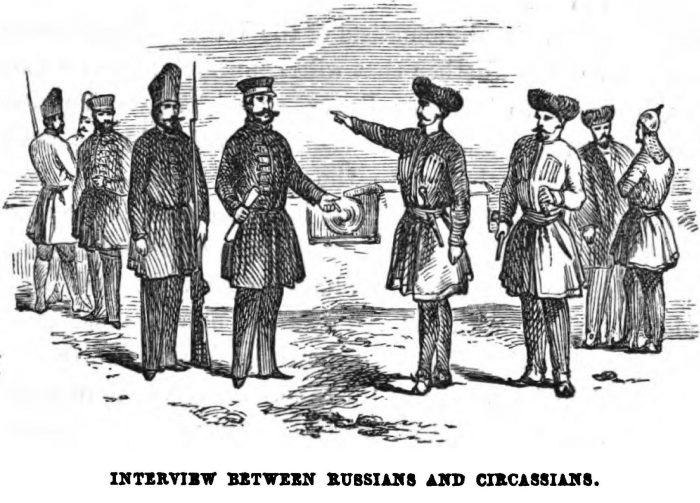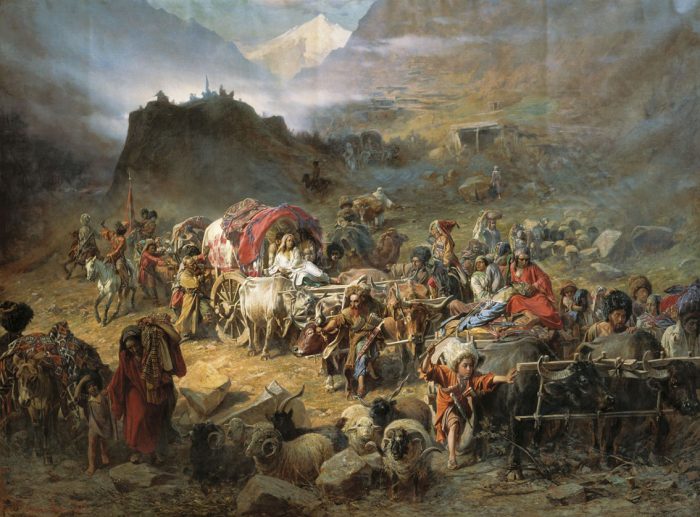When the Colonizer Decides without Consulting Colonized Nations
Adel Bashqawi
August 18, 2024

Introduction
It is not the first time, nor will it be the last, that the political leadership of the Russian colonial state has made sovereign decisions that are excessively harsh on those who are supposed to be partners in the homeland. These decisions, related to state affairs and impacting supposed citizens among oppressed peoples and nations, have been imposed by the Russian Empire with an iron fist since the nineteenth century.

The Persistence of Colonial Policy
The official announcement of Russia’s suspension of participation in the “European Framework Convention for the Protection of National Minorities” on August 1, 2024, is nothing more than an attempt to evade obligations rather than address the underlying issues. This was followed by the publication of the “official announcement by the Russian Foreign Ministry on this matter on Wednesday (August 14, 2024), on the official legal website” on the Internet.
This decision echoes past actions: the annexation of dozens of peoples and nations into what was unjustly and falsely called the Russian Federation, without consulting them or obtaining their prior consent. These peoples were forced to become submissive members, bound by authoritarian laws and procedures to which they had no say. Knowing that their formal accession was against their will, they found themselves annexed to an authoritarian colonial state with a decorative title devoid of any tangible or creative content.
It goes without saying that this recent announcement of withdrawal from the European Convention for the Protection of National Minorities was a deliberate attempt to insult the occupied peoples and nations. These communities were neither the first to suffer nor will they be the last. Perhaps the colonial authorities believe this will pass without consequences or without the availability of prompt justice to eliminate colonialism and its repercussions by appropriate means.
These practices are nothing but an attempt to obscure the truth and delay the inevitable winds of freedom and independence that have begun to blow strongly. These winds have drawn attention to the aspirations of dozens of peoples and nations seeking to restore their legitimate rights. Let us be frank and clear: even before the withdrawal from the agreement, what improvements and achievements have been made or presented to the members of the so-called federation over the past 26 years?
It seems that the European Union has reached the conclusion that Russia’s persistence in implementing its colonial policy—exemplified by the attack on Ukraine in February 2022, the occupation of the Crimean Peninsula in February 2014, and the annexation of several regions and provinces in southeastern Ukraine—has continued unabated. These actions, carried out in cooperation with local militias loyal to Russia, have led to referendums and formal procedures of no real value, merely serving to consolidate Russian control.
- “On 16 March 2022, Russia was expelled from the Council of Europe after 26 years of membership. The day before, the Parliamentary Assembly unanimously voted to expel Russia.
- By February 2023, the State Duma adopted a law terminating 21 treaties with the Council of Europe, including the human rights convention, in relation to Russia.”

britannica.com
Hostilities Towards Those Demanding Freedom and the Right to Self-Determination
The absurd Russian actions towards organizations and institutions demanding the restoration of the legitimate rights of their peoples and homelands under Russian rule are yet another blunder by the authorities. The colonized peoples have reached the conclusion that the Russian state is obstinate in maintaining control over them and their lands. Russia now needs to recruit fighters from non-Russian peoples and nations to send to fight its imposed war on Ukraine.
“The list of {extremist organizations} on the website of the Russian Ministry of Justice was updated on July 25. The appearance of a new organization under number 109 on the list was noticed by lawyer Andrei Fedorkov, who collaborates with the human rights project {Support for Political Prisoners. Memorial}. According to Fedorkov, he monitored the list since he assumed that the appearance of another ‘extremist organization’ on it would happen any day now.”
These brave peoples and nations have therefore decided to take appropriate escalatory measures to make the democratic countries understand their struggle for freedom, self-determination, and independence. They seek international support for the recognition of their usurped rights. These measures began with unjust security decisions against activists and public figures, alongside the harassment of their families, acquaintances, and neighbors—not to mention the peoples and nations whose rights and homelands have been usurped for decades. The Russian authoritarian authorities have renewed their campaigns of intimidation and bullying against the families of some activists.
“The completely non-existent organization is called: {International Public Movement for the Destruction of Multinational Unity and Territorial Integrity of Russia ‘Anti-Russian Separatist Movement’}. The Ministry of Justice counted 55 structural divisions of the movement.”
Harassment of Families and Neighbors of Circassian Activists
These measures began with the imposition of unfair decisions against activists and public figures, along with the oppression of peoples and nations whose rights and homelands have been usurped for decades. The Russian authoritarian authorities have launched campaigns of intimidation and bullying against families and citizens, terrorizing them and warning them against engaging in any activities that might be considered against local and central authorities alike.
The Caucasus Realities website reported on August 6, 2024, that “Law enforcement officials have come to inspect the home of the parents of Circassian activist Martin Kochesoko in Kabardino-Balkaria. This is the third visit by security officials in a month and a half. The public figure lives outside of Russia… The police called neighbors as witnesses, while his parents refused to answer the operatives’ questions. According to him, the security forces know that he does not live in this house.”
In a similar context, the security services have continued their usual absurd games and horrendous acts. “On 19 July (2024), Kase Kik, who is currently based in the US, stated that the police in Karachay–Cherkessia conducted a search of his parents’ residence, confiscating their phones in a move he called ‘illegal and unauthorized’… The search was carried out by the FSB and the local Interior Ministry’s Centre for Combating Extremism.”

Source: William R. Shepherd, Historical Atlas (1911)
Conclusion
True logic should now motivate human rights defenders, indigenous peoples whose homelands have been occupied, and advocates of decolonization in the European Union and the world to announce the establishment of a global council dedicated to achieving freedom, the right to self-determination, and independence for the dozens of peoples and nations whose homelands have been occupied by force of arms and have not yet found the opportunity to restore their usurped rights.
